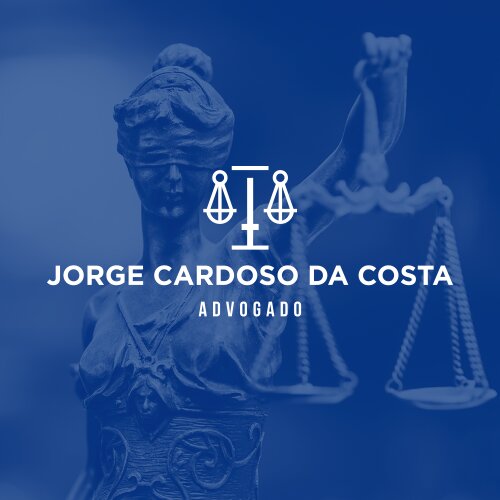Best Child Custody Lawyers in Vila Nova de Gaia
Share your needs with us, get contacted by law firms.
Free. Takes 2 min.
Free Guide to Hiring a Family Lawyer
List of the best lawyers in Vila Nova de Gaia, Portugal
About Child Custody Law in Vila Nova de Gaia, Portugal
Child custody law in Vila Nova de Gaia, Portugal, governs the legal rights and responsibilities of parents regarding the care and upbringing of their children when a relationship ends. The primary consideration is always the best interests of the child, as established by Portuguese family law. Custody can be shared (joint parental responsibility) or assigned to one parent, with arrangements for visitation and financial contributions from the non-custodial parent. Courts generally encourage agreements between parents but will intervene when necessary to protect the child's welfare.
Why You May Need a Lawyer
Legal assistance is often critical in child custody cases, especially when communication between parents has broken down or there are disputes about living arrangements, visitation, or child support. You may need a lawyer if:
- You are separating or divorcing from your partner and cannot agree on custody terms.
- There are allegations of abuse, neglect, or unfit parenting.
- You are facing international custody issues, such as relocation or abduction.
- One parent is denying the other their legal rights of visitation or custody.
- You want to formalize a custody agreement to ensure its enforceability.
- You are seeking to change an existing custody order or agreement.
A lawyer ensures your rights are protected and helps you navigate the legal process efficiently, reducing stress and potential conflict.
Local Laws Overview
Child custody in Vila Nova de Gaia is governed by the Portuguese Civil Code, which applies throughout the country. The main principles include:
- Best Interests of the Child: All decisions center on what serves the child's physical, emotional, and educational well-being.
- Parental Responsibility: Both parents typically retain responsibilities and rights, even after separation, unless the court decides otherwise for the child's safety or welfare.
- Types of Custody: The law leans toward joint custody, where both parents share decision making, but sole custody may be granted under certain circumstances.
- Child's Preferences: Older children's opinions may be considered by the judge, depending on their age and maturity.
- Visitation Rights: Non-custodial parents are usually entitled to regular contact with their child unless it is deemed harmful.
- Enforcement: Court orders are enforceable, and failure to comply can lead to legal consequences.
Local courts in Vila Nova de Gaia handle custody matters, always prioritizing the child's protection and stability.
Frequently Asked Questions
What is the difference between joint and sole custody in Portugal?
Joint custody means both parents share parental responsibilities and decision making. Sole custody means only one parent has the primary authority and the child usually resides with them, while the other parent typically retains visitation rights.
How is child custody decided in Vila Nova de Gaia?
Courts consider the best interests of the child, including emotional bonds, stability, each parent's ability to care for the child, and the child’s wishes if they are old enough.
Does the mother always get custody?
No. Portuguese law does not give preference to mothers or fathers. The decision is based on the best interests of the child.
Can custody arrangements be changed after they are finalized?
Yes. If circumstances change significantly, either parent can request a modification of custody terms through the court.
What can I do if the other parent does not comply with the custody order?
You can seek legal enforcement through the local family court. Persistent violation of court orders can have legal consequences for the offending parent.
Is mediation available for child custody disputes in Vila Nova de Gaia?
Yes. Family mediation services are available and encouraged to help parents reach agreements amicably without court intervention.
How is child support determined?
The amount is based on the child’s needs and the financial capacity of each parent. Either parent may be required to pay child support, regardless of who has custody.
At what age can a child express a preference about where to live?
Children younger than 12 may be heard if they show maturity, but from age 12 onward, their opinion is given more weight by the court.
Can I take my child to live abroad after divorce?
Generally, relocating abroad with a child requires the other parent’s consent or a court order, especially if it affects custody or visitation rights.
What rights do grandparents have in child custody cases?
Grandparents may apply for visitation rights if it is in the child’s best interests, particularly if they have had a significant relationship with the child.
Additional Resources
If you need assistance or more information about child custody in Vila Nova de Gaia, consider contacting the following:
- Comarca Judicial Courts - Family and Minors Section (Vila Nova de Gaia)
- Direção-Geral da Administração da Justiça (General Directorate of Justice Administration)
- Ordem dos Advogados (Portuguese Bar Association) for lawyer referrals
- Comissão de Proteção de Crianças e Jovens (CPCJ) - Local Child Protection Commission
- Mediation centers and social services offered by the municipality
Next Steps
If you require legal help regarding child custody in Vila Nova de Gaia, consider taking the following steps:
- Gather all relevant documents such as birth certificates, prior agreements, court orders, and correspondence.
- Try to communicate with the other parent to seek an amicable solution or mediation if possible.
- Contact a qualified family law lawyer in Vila Nova de Gaia for specific legal advice suited to your case.
- Consult local authorities or social services if you believe the child’s welfare is at immediate risk.
- Prepare for court or mediation by noting your concerns, desired outcomes, and any evidence supporting your claims.
Taking prompt and informed action, with the support of experienced professionals, ensures you are protecting your child’s interests and your legal rights.
Lawzana helps you find the best lawyers and law firms in Vila Nova de Gaia through a curated and pre-screened list of qualified legal professionals. Our platform offers rankings and detailed profiles of attorneys and law firms, allowing you to compare based on practice areas, including Child Custody, experience, and client feedback.
Each profile includes a description of the firm's areas of practice, client reviews, team members and partners, year of establishment, spoken languages, office locations, contact information, social media presence, and any published articles or resources. Most firms on our platform speak English and are experienced in both local and international legal matters.
Get a quote from top-rated law firms in Vila Nova de Gaia, Portugal — quickly, securely, and without unnecessary hassle.
Disclaimer:
The information provided on this page is for general informational purposes only and does not constitute legal advice. While we strive to ensure the accuracy and relevance of the content, legal information may change over time, and interpretations of the law can vary. You should always consult with a qualified legal professional for advice specific to your situation.
We disclaim all liability for actions taken or not taken based on the content of this page. If you believe any information is incorrect or outdated, please contact us, and we will review and update it where appropriate.









